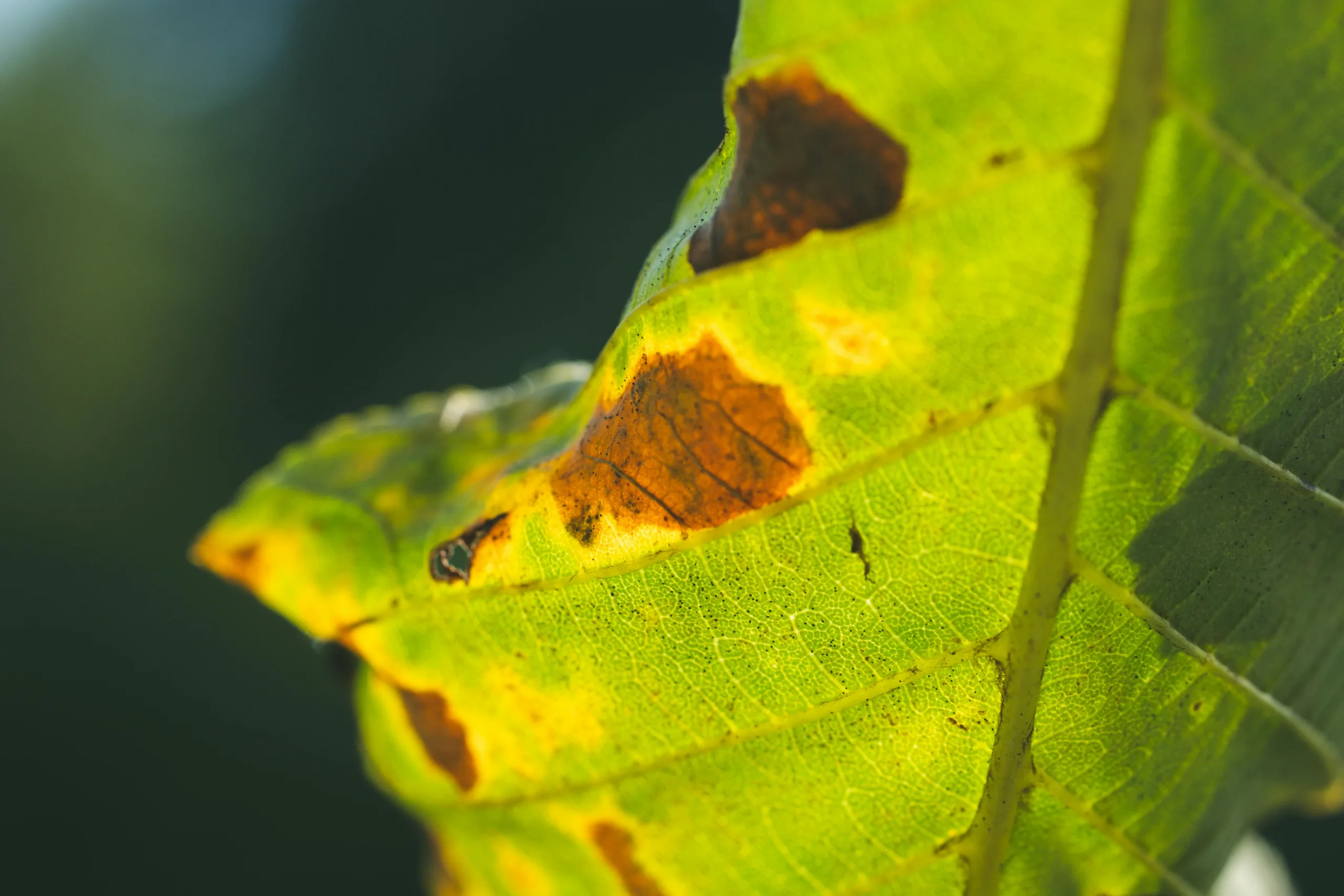Boost Plant Health & Profits with a Deeper Understanding of Plant Pathology
Plant production is impacted every year by a range of plant health issues, leading to reduced yields and lower profits. Understanding and managing these problems is essential for improving productivity in horticulture—and for increasing your bottom line.
Plant pathology goes far beyond simply identifying pests and diseases. While some pests do cause plant damage, not all plant problems are pest-related—and not all pests are considered pathological.
This course explores the science of plant pathology, focusing on disorders caused by physiological damage or cellular irritation. You’ll learn how internal plant cell malfunctions can disrupt essential biological processes, resulting in poor growth, reduced yields, or plant death.
Whether you’re managing crops commercially or growing plants on a smaller scale, a strong foundation in plant pathology helps you:
-
Identify and manage a wide range of plant diseases
-
Prevent future outbreaks or systemic issues
-
Improve crop resilience and sustainability
-
Maximise productivity and profitability
Course Aims:
- Describe a range of pathological problems that affect plants.
- Describe symptoms of a range of diseases that affect plants.
- Describe disease life cycles and explain how this knowledge can be applied in disease control
- Explain the methods used to control diseases
- Demonstrate a comprehensive knowledge of a particular plant pathogen.
- Identify and describe a range of non-infectious diseases and problems that affect plants
- Identify and describe a range of common pathogens that affect ornamental plants.
- Identify and describe a range of common pathogens that affect crop plants
There are 8 lessons in this course:
There are 8 lessons in this course:
- Introduction
- Overview of plant disease
- Diagnosis of problems: nutritional, environmental, pathological
- Symptoms
- Common terminology
- Types of Diseases
- Morphological changes
- Necrosis
- Hypoplasia’s
- Hyperplasia
- Types of pathogens: viruses, bacteria, actinomycetes, fungi, nematodes
- Techniques for diagnosing plant diseases: optical equipment, preparing pathogens for observation, culture methods, inoculation, etc
- Plant viruses; detection and diagnosis
- Plant nematodes
- Case study: Australian plant nematodes
- Main types of diseases
- Spots
- Rots
- Cankers
- Galls
- Mildews
- Rusts
- Moulds
- Wilts
- Scabs
- Others
- Using a key to diagnose diseases in plants
- The Lifecycle of a Disease
- Inoculation
- Penetration
- Infection
- Growth and reproduction
- Dissemination
- Methods of penetration by bacteria and nematodes
- Lifecycle of nematodes
- Fungal biology
- Role of insect spreading fungal and bacterial pathogens
- Control Techniques
- Sanitation
- Resistant Plant Varieties
- Biological Controls
- Soil Drenches/dips
- Chemical Controls
- Nematicides
- Soil fumigants
- Contact poisons
- Fungicides and the environment
- Systemic fungicides
- Misters, dusters, blowers, sprayers
- Spray maintenance and cleaning
- Natural controls: cultural, physical, biological, etc
- Terminology
- Selected Pathogen Diseases Ornamentals
- Fungi affecting turf
- Phytophthora cinnamomi
- The process of tree decay: Shigo
- Case study: how phytophthora cinnamomi kills a susceptible Eucalyptus
- Peach powdery mildew
- Rose powdery mildew
- Honey fungus on rhododendrons and azaleas
- Petal blight on rhododendrons and azaleas
- Selected Pathogen Diseases Crops
- Sclerotinia rot in vegetables
- Nematodes and citrus production
- Citrus diseases: scaly butt, lemon crinkle, citrus canker
- Brown rot
- Fire blight
- Apple fruit rot caused by trichoderma harzianum
- Prunus necrotic ringspot virus in cut flower roses
- Potato and tomato blight
- Club root
- Non-Infectious Diseases
- Nutritional disorders
- Lack of water
- Excess water
- Other environmental problems
- Disorders caused by man: mechanical damage, pollution
- Case Study: Air pollution
- Other disorders: genetic, disturbed growth
- Non parasitic turf problems
- Special Project

